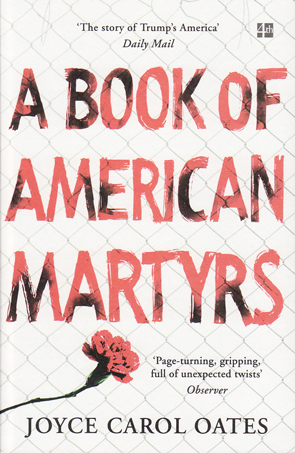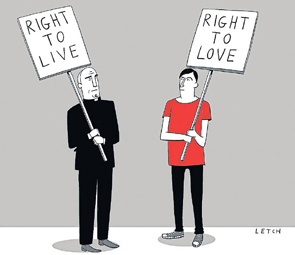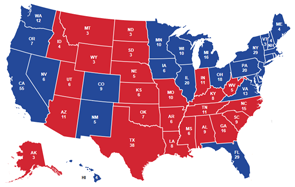It may sound disingenuous for me to say that I did not know what this book was about when I bought it, and that by saying it I’m stepping back from the issues the book deals with. The truth is, as Donald Trump will attest himself, his name sells and now that he is the president it sells even more. All it took as I stared at the shelves, gimlet-eyed, for maybe just one more novel to add to the pile I’d already accrued – I tend to go overboard when I’m let loose in a bookstore – was to see that name on the cover. The story of Trump’s America
, claims a quote from the Daily Mail. That was enough. I grabbed the book and headed to the register with the other sixteen books I was buying.
Now, that claim has to be qualified, somewhat. The opening scene in the book takes place on November 2 1999 and the timeframe of the novel extends to 2012. So, this isn’t President Trump’s America, but it addresses issues American society has been struggling with for over forty years and represents a wide range of opinions from the liberal social elites
, or progressives who support Democratic agendas, to conservative Republicans and hard-right Christian activists who take comfort in President Trump’s support of the Right to Life movement.
The novel opens dramatically. Luther Dunphy, a conservative Christian associated with the St Paul Missionary Church of Jesus, walks onto the property of a Women’s Health Clinic where abortions are performed early in the morning of November 2 and kills Dr Gus Vorhees and Army Major Timothy Barron, a volunteer assistant, with his shotgun. The killing is witnessed by many, but Dunphy does not intend to escape persecution. He lays his shotgun on the ground and waits for police to arrive and arrest him. Luther Dunphy says he has been commanded by God to kills Gus Vorhees to protect the innocent unborn children of women attending the clinic, and he intends to be worthy of God. In Dunphy’s eyes he has not committed murder but has acted in the defence of the unborn. For those in his church where this sort of action is advocated and applauded, Dunphy is a hero.
The novel refers to the 1973 Supreme Court judgement, Roe v. Wade, in which the Supreme Court decided that a woman’s right to an abortion was implicit in the 14th Amendment, that it was an issue concerning the right to privacy, which outweighed the rights of the state. Of course, this judgement balanced a woman’s right to choose with the state’s interest in new-borns. Women had a right to choose in the first trimester, but this right diminished with the increased viability of a child to survive outside the womb, which was taken to mean by the third trimester, although that viability could be deemed to exist before then. The Christian protagonists in this novel oppose this judgment and consider that God’s law supersedes secular law.
One of the strengths of this novel is that Oates gets into the minds of her protagonists and tries to faithfully represent their point of view. For the most part she avoids a partisan approach and the denouement of the novel lies in this; that the martyrs of crime are not always religious zealots who choose their own destruction for a cause, or liberal progressives who provoke a reaction, but those left behind after the drama is over. Luther Dunphy is a martyr
to his cause, a self-styled Soldier of God
, while Gus Vorhees provokes outrage with his high profile advocacy. The novel explores the idea of martyrdom through these men and those they leave behind, in particular their daughters, Dunphy’s daughter Dawn and Vorhees’s daughter Naomi.
The first part of the novel focuses not only on Dunphy’s crime, but also his life beginning with his courtship of Edna Mae, their burgeoning family and the terrible guilt that Luther Dunphy cannot face. One night while driving – another driver was at fault, it was not him, he continues to tell himself – he was involved in a car accident that killed his three-year-old daughter, Daphne. Except Daphne was not in the car. He cannot accept that she was. He remembers being alone. Dunphy cannot be blamed, just as he does not accept that he was responsible for the death of Tim Bannon. He does not remember pulling the trigger. He freely admits killing Vorhees, the baby murderer, but not Bannon whose death was not justified according to his church’s principles. It was not him.
Oates delivers a convincing portrait of Dunphy’s family and their beliefs which evokes some sympathy with their suffering. She also tries to honestly represent Dunphy’s state of mind and reasoning for his actions while separating them from those in the Right to Life camp who are appalled by his actions. By this means Oates provides some balance in her portrayal, even though Dunphy is clearly a man not in his right mind: a man who feels tempted to end his wife’s life if it be God’s will; a man who is wracked with guilt by his own sexual desires and his sense of failure in his church.
Oates also provides a convincing portrait of the Vorhees family, torn apart by the loss of Gus Vorhees, trying to make sense of what has happened, and dealing with their own desire for justice, for revenge or anything that might mitigate the pain they feel. What we witness in the novel is the disintegration of both families through the eyes of the eldest children – primarily through the eyes of Dunphy’s daughter Dawn and through the eyes of Vorhees’s daughter, Naomi. Dawn will struggle with her social alienation as the daughter of Dunphy, bullying, assault, low self-esteem and her foray into boxing. Naomi will struggle with the grief of her loss, expressed in her attempts to create a memorial to her lost father, an archive of documents and memories that commemorate his life, and eventually a documentary film. In effect, both have lost a father and both become estranged from their families. Oates draws these parallels throughout the novel. In essence, these families aren’t that different, except the principles upon which each is founded.
All this is not to say that Oates doesn’t take sides in this argument. I think Oates is against extreme fanaticism and the careful parallels she draws between the lives of the families suggest this. Oates’s critical eye is focussed mostly on the fanaticism of the anti-abortionists. She undermines their position based upon researched material. As the months of protest outside Voorhees’s abortion clinic pass, it is often the female Christian protesters who will come to him secretly, asking for an abortion for special reasons they are sure Jesus will forgive. Added to this is the methods of extortion for settlement money, used by churches in the novel, which occasionally follow the abortionist’s help: claiming that the Christian women were forced by their doctor into an abortion.
But in the end, A Book of American Martyrs is overwhelmingly about the response to fanaticism. All major character struggle to cope with what happens at the Women’s Clinic on 2 November 1999. Neither Dawn’s mother, Edna Mae nor Naomi’s mother, Jenna, provide proper support for their children in the aftermath of the killing, leaving their children exposed, searching for purpose and meaning. Jenna desires to turn against her Christian detractors – You are dangerous fanatics – religious lunatics! Your wrathful God does not exist, you are brainwashed and absurd
– but instead chooses to withdraw from her children’s lives. Edna Mae, estranged from her husband, estranges her daughter Dawn with her fanatic scrummaging through dumpsters looking for aborted foetuses. Dawn’s mental decline is suggested in her response to 9/11, while Naomi’s short mental breakdown finds expression, ironically, in religious iconography:
It came to me – a conviction. But it’s almost impossible to explain. That Daddy is dead – and Luther Dunphy is dead – but you are my mother – I am your daughter – and we are alive. This is a great revelation to me after years of blindness and self-absorption. It’s a revelation like a boulder rolled away from the mouth of a cave.
At the heart of the novel is a deep nihilistic fatalism in each family; a belief that everything was for nothing and the evidence that Gus Vorhees and Luther Dunphy are forgotten over time by the public only reinforces this. The world will prevail without him,
Jenna opines. In a few decades no one will even remember that he’d lived. Or that he’d died as a ‘martyr’.
Edna Mae feels equally pessimistic: They’re forgetting Luther! They’re forgetting who he is, what he did – the sacrifices he made.
All this is as may be expected. As a representation of Trump’s America
, the book is powerful. Not only is there the issue of abortion, but the gun issue, too, the question of capital punishment and the exploitation of women and minorities. Oates gives sympathy where it is due, evoking a humanist response to these issues rather than a religious or moralistic one. Oates’s parallel narratives of the two families, for all the heartbreak, anger or violence, ultimately focusses upon the similarities we share as human beings rather than the divisions caused by ideology and belief.
If I have one criticism of the novel it is that it is too long. The last third of the book should have been edited. I think that the treatment of Dawn and Naomi’s stories needed to be more succinct so as not to detract from the final denouement. It's length weakened the novel from it's powerful opening, and while the last third of the novel was anticipated and relevant, it still felt like the story had lost its way, sometimes.
Nevertheless, the book is deeply relevant to Trump’s America. Congress refused Obama’s nomination, Merrick Garland, to the Supreme Court after Justice Antonin Scalia died, leaving Trump to select Neil Gorsuch upon his assuming office. Now, with Justice Anthony Kennedy’s retirement (appointed by Reagan, but casting votes that showed a balanced position throughout his career), the way lies open for Trump to create an increasingly conservative bench that may be hostile to Women’s Health issues, along with other progressive issues, far into the future. The novel advocates the need to heal and forgive, but that does not seem to be the way of modern party politics; not in America, nor as we have experienced it here in Australia for over a decade.

 RSS Feed
RSS Feed Facebook
Facebook Instagram
Instagram YouTube
YouTube Subscribe to our Newsletter
Subscribe to our Newsletter





No one has commented yet. Be the first!